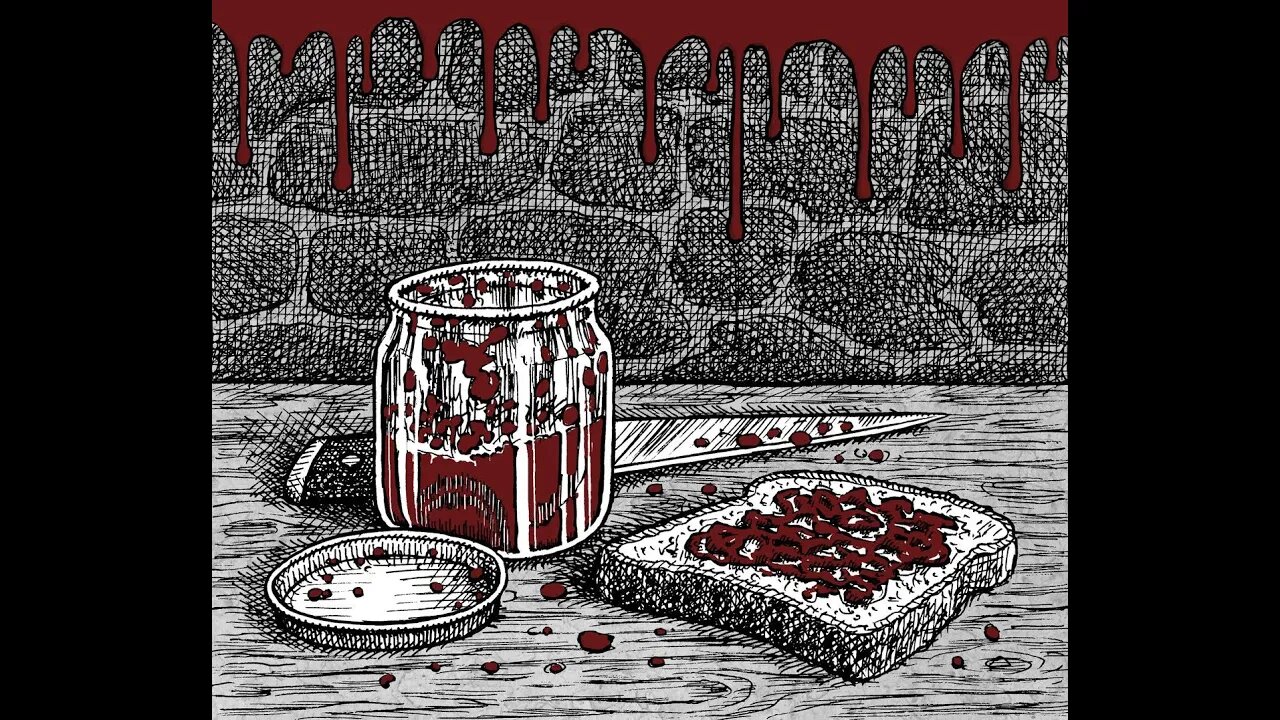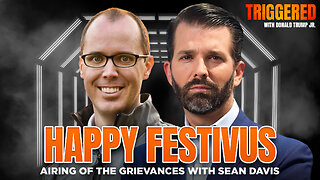Premium Only Content

Rite of Drinking Blood Why Religious & Non-Religious Rituals Drink Human Blood - Supernatural Power
There cannot be enough study or discussion as to why Humans drink the blood of other Humans and substitute animal blood in religious Rites and ceremonies. Stranger yet is how modern society sees this as a completely normal way of expressing devotion to God. Even stranger is why would a God demand that it's followers practice this holy rite that is nothing more than Cannibalism. This is a taboo subject seldom ever spoken about and for good reason. What most do not know is how powerful this rite can actually be.
A Big hug to Caz Hawks you are so talented and a good friend! Check out her new song Favor Be To You: https://www.youtube.com/watch?v=PVl-D9ZcjKY
https://www.cochranelibrary.com/cdsr/doi/10.1002/14651858.CD006207.pub5/full
Make sure to follow me on:
https://odysee.com/@RWayneSteiger:0
https://rumble.com/vzrg5e-magic-a-tre...
https://www.spreaker.com/user/1641801...
Twitter: https://twitter.com/wayne_steiger
I speak loving Favor over everyone and may Peace mount guard over you and protect you.
Ignorance is a self-inflicted disease that is easily cured with Knowledge. R. Wayne Steiger
Modern Science is Outdated Magick R. Wayne Steiger
May Favor walk with you always.
My backup channel is Wayne Steiger
Embrace Free Thinkers
If you have an unusual story just email @ steigerrwayne@gmail.com
Fair Use Act Disclaimer
This site is for educational purposes only.
Fair Use
Copyright Disclaimer under section 107 of the Copyright Act of 1976, allowance is made for “fair use” for purposes such as criticism, comment, news reporting, teaching, scholarship, education and research.
Fair use is a use permitted by copyright statute that might otherwise be infringing.
Fair Use Definition
Fair use is a doctrine in United States copyright law that allows limited use of copyrighted material without requiring permission from the rights holders, such as commentary, criticism, news reporting, research, teaching or scholarship. It provides for the legal, non-licensed citation or incorporation of copyrighted material in another author’s work under a four-factor balancing test.
-
 1:01:17
1:01:17
The StoneZONE with Roger Stone
2 hours agoChristmas Edition: Why the Panama Canal is Part of the America First Agenda | The StoneZONE
3.3K3 -
 LIVE
LIVE
LFA TV
12 hours agoLFA TV CHRISTMAS EVE REPLAY
749 watching -
 LIVE
LIVE
tacetmort3m
20 hours ago🔴 LIVE - THE ZONE KEEPS PULLING ME BACK - STALKER 2 - PART 15
155 watching -
 22:45
22:45
Brewzle
9 hours agoI Went Drinking In A Real Bourbon Castle
2711 -
 48:36
48:36
PMG
1 day ago $0.06 earned"Parkland Parent Speaks Out On Kamala Harris Using Victims"
417 -
 4:06
4:06
The Lou Holtz Show
8 hours agoCoach Lou Holtz’s Heartfelt Christmas Message 🎄 | Family, Faith & Notre Dame Spirit 💚 #christmas
63 -
![ROSEANNE BARR - Her Journey, TRUMP, and the MAGA GOLDEN AGE! [INTERVIEW]](https://1a-1791.com/video/s8/1/M/m/B/2/MmB2v.0kob.1-small-ROSEANNE-BARR-Her-Journey-T.jpg) 51:35
51:35
Dr Steve Turley
1 day ago $14.43 earnedROSEANNE BARR - Her Journey, TRUMP, and the MAGA GOLDEN AGE! [INTERVIEW]
35.4K49 -
 57:38
57:38
The Tom Renz Show
6 hours agoMerry Christmas - The Tom Renz Show Christmas
73.9K14 -
 2:59:10
2:59:10
Wendy Bell Radio
16 hours agoThe Bridge Too Far
154K289 -
 1:03:45
1:03:45
Donald Trump Jr.
1 day agoHappy Festivus: Airing Our Grievances and Stopping The Swamp w/Sean Davis | TRIGGERED Ep.201
416K535